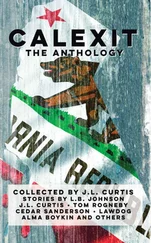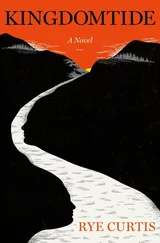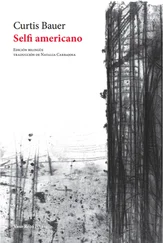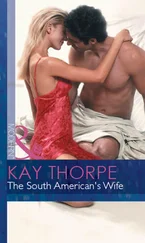Curtis Sittenfeld - American Wife
Здесь есть возможность читать онлайн «Curtis Sittenfeld - American Wife» весь текст электронной книги совершенно бесплатно (целиком полную версию без сокращений). В некоторых случаях можно слушать аудио, скачать через торрент в формате fb2 и присутствует краткое содержание. Жанр: Старинная литература, на английском языке. Описание произведения, (предисловие) а так же отзывы посетителей доступны на портале библиотеки ЛибКат.
- Название:American Wife
- Автор:
- Жанр:
- Год:неизвестен
- ISBN:нет данных
- Рейтинг книги:4 / 5. Голосов: 1
-
Избранное:Добавить в избранное
- Отзывы:
-
Ваша оценка:
- 80
- 1
- 2
- 3
- 4
- 5
American Wife: краткое содержание, описание и аннотация
Предлагаем к чтению аннотацию, описание, краткое содержание или предисловие (зависит от того, что написал сам автор книги «American Wife»). Если вы не нашли необходимую информацию о книге — напишите в комментариях, мы постараемся отыскать её.
American Wife — читать онлайн бесплатно полную книгу (весь текст) целиком
Ниже представлен текст книги, разбитый по страницам. Система сохранения места последней прочитанной страницы, позволяет с удобством читать онлайн бесплатно книгу «American Wife», без необходимости каждый раз заново искать на чём Вы остановились. Поставьте закладку, и сможете в любой момент перейти на страницу, на которой закончили чтение.
Интервал:
Закладка:
One afternoon in the beginning of our sophomore year in high school, Andrew unceremoniously broke up with Dena; he said football practice made him too tired to have a girlfriend. He was six feet tall by then, was a JV kicker for the Benton County Central High School Knights, and wore his once-shaggy hair in a crew cut. At that point, I stopped talking to him altogether. This was less out of loyalty to Dena—Andrew and I did still smile mildly at each other in the halls—than due to simple logistics, the fact that I had no classes with him. Our high school was bigger than our elementary or junior high schools had been, drawing kids who came from as much as an hour away.
During the years Dena and Andrew had been together, I’d often marveled at both the swiftness and randomness of their coupling. Ostensibly, he’d had no interest in Dena, and hours later, he’d become hers. It seemed to be a lesson in something, but I wasn’t sure what—an argument for aggression, perhaps, for the bold pursuit of what you wanted? Or proof of most people’s susceptibility to persuasion? Or just confirmation of their essential fickleness? After I’d read Andrew’s note, was I supposed to have immediately marched up to him and staked my claim? Had my faith in our pleasantly murky future been naive, had I been passive or a dupe? These questions were of endless interest to me for several years; I thought of them at night after I’d said my prayers and before I fell asleep. And then, once high school started, I became distracted. By the time Dena and Andrew broke up (she seemed insulted more than upset, and the insult soon passed), I had, somewhere along the way, stopped dwelling on the two of them and on what hadn’t happened with Andrew and me. When I did think of it, fleetingly, it seemed ridiculous; if the events behind us held any lessons, they were about how silly young people were. Dena and Andrew’s supposed love affair, my own yearnings and confusion—they all came to seem like nothing more than the backdrop of our childhood.
EVERY YEAR, THE day after Christmas, my grandmother took the train to visit her old friend Gladys Wycomb in Chicago, and every summer, my grandmother returned to Chicago for the last week in August. In the winter of 1962, when I was a junior, my grandmother announced at dinner one evening in November that this Christmas she wanted me to accompany her—her treat. It would be a kind of cultural tour, the ballet and the museums, the view from a skyscraper. “Alice is sixteen, and she’s never been to a big city,” my grandmother said.
“I’ve been to Milwaukee,” I protested.
“Precisely,” my grandmother replied.
“Emilie, that’s a lovely idea,” my mother said, while at the same time, my father said, “I’m not sure it’ll work this year. It’s rather short notice, Mother.”
“All we need to do is book another train ticket,” my grandmother said. “Even an old bird like myself is capable of that.”
“Chicago is cold in December,” my father said.
“Colder than here?” My grandmother’s expression was dubious.
No one said anything.
“Or is there some other reason you’re reluctant to have her go?” My grandmother’s tone was open and pleasant, but I sensed her trickiness, the way she was bolder than either of my parents.
Another silence sprang up, and at last my father said, “Let me consider this.”
In the mornings, my family’s routines were staggered: My father usually had left for the bank by the time I came downstairs—I’d find sections of The Riley Citizen spread over the table, my mother at the sink washing dishes—and my grandmother would still be asleep when I took off for school. But that next morning, I hurried downstairs right after my alarm clock rang, still in my nightgown, and said to my father, “I could buy my own train ticket so Granny doesn’t have to pay.” My allowance was three dollars a week, and in the past few years, I’d saved up over fifty dollars; I kept the money in an account at my father’s bank.
My father, who was seated at the table, glanced toward my mother; she was standing by the stove, tending to the bacon. They exchanged a look, and my father said, “I didn’t realize you were so keen on seeing Chicago.”
“I just thought if the ticket was the reason—”
“We’ll talk about it at dinner,” my father said.
Every evening, the grace my father recited before we ate was “Come, Lord Jesus, be our guest, and let these gifts to us be blessed. O give thanks unto the Lord, for He is good, and His mercy endures forever.” Then the rest of us said “Amen.” That night, as soon as we’d raised our bowed heads, my father said, “My concern about Alice traveling to Chicago with you, Mother, is the imposition it creates for Gladys, so I’ve called and made a reservation for you both to stay at a hotel called the Pelham. You’ll be my guests for the week.”
As if she, too, were hearing this offer for the first time, my mother exclaimed, “Isn’t that generous of Daddy!” In a normal voice, she added, “Alice, pass the creamed broccoli to your grandmother.”
“My colleague Mr. Erle used to live in Chicago,” my father said. “According to him, the Pelham is a very fine place, and it’s in a safe neighborhood.”
“You’re aware that Gladys has an enormous apartment with several spare bedrooms?” It was hard to tell whether my grandmother was irritated or amused.
“Granny, we just don’t know Mrs. Wycomb the way you do,” my mother said. “We’d feel forward presuming on her.”
“Doctor,” my grandmother said. “Dr. Wycomb. Not Mrs. And Phillip, you know her well enough to realize she’ll still insist on having us over.”
“Gladys Wycomb is a doctor?” I said.
Once again, my parents exchanged a look. “I don’t see that having dinner with her once or twice would be a problem,” my father said.
“What’s she a doctor of?” I asked.
All three of them turned toward me. “Female problems,” my mother said, and my father said, “This isn’t appropriate conversation for the dinner table.”
“She was the eighth woman in the state of Wisconsin to earn her medical degree,” my grandmother said. “I don’t know about you, but as someone who can hardly read a thermometer, I take my hat off to that.”
I HAD GROWN up hearing Gladys Wycomb’s name—given my grandmother’s biannual journeys, Gladys Wycomb was, in my mind, less a person than a destination, faraway yet not entirely unfamiliar—but it was only with the introduction of my own trip to Chicago that I realized how little I knew about her. A few hours later, my mother came to say good night while I was reading an Agatha Christie novel in bed, and I asked, “Why doesn’t Dad like Dr. Wycomb?”
“Oh, I wouldn’t say he doesn’t like her.” My mother had been standing over me and had already kissed my forehead, but now she sat on the edge of the bed, setting her hand where my knees were beneath the covers. “Dr. Wycomb has known Daddy since he was a little boy, and she can be a bit bossy. She thinks everyone should share her opinions. I guess you wouldn’t remember her visits here because the first was when you were just a baby, and the next one might have been when you were four or five, but there was something that happened on the second visit, a discussion about Negroes—should they have rights, and that sort of thing. Dr. Wycomb was very keen on the subject, as if she wanted us to disagree with her, and we just thought, for heaven’s sakes, there aren’t any Negroes in Riley.” This was literally true, that not one black person lived in our entire town. I’d seen black people—as a child, I’d once been captivated as we drove by a restaurant outside which stood a mother, father, and two little girls my age in pink dresses—but that had been in Milwaukee.
Читать дальшеИнтервал:
Закладка:
Похожие книги на «American Wife»
Представляем Вашему вниманию похожие книги на «American Wife» списком для выбора. Мы отобрали схожую по названию и смыслу литературу в надежде предоставить читателям больше вариантов отыскать новые, интересные, ещё непрочитанные произведения.
Обсуждение, отзывы о книге «American Wife» и просто собственные мнения читателей. Оставьте ваши комментарии, напишите, что Вы думаете о произведении, его смысле или главных героях. Укажите что конкретно понравилось, а что нет, и почему Вы так считаете.












